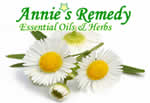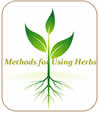Green Home: An environmentally friendly household

Apple Cider Vinegar * Cinnamon * Grapefruit * Lemon * Orange * Tea Tree oil *
Our modern, disposable lifestyle has a toxic effect on our personal health, and the health of our planet. Herbs and other environmentally friendly household items can replace the chemical products we use to clean our homes, control pests, and care for our pets. Consider the effect that simple, small changes can make to make your home a better, more natural place to live.
|
| |||
|---|---|---|---|
 Bulk Herbs |
 Bitters & Syrups |
 Herbal Extracts |
 Herbal Health |
Green Home Remedies
There are ways to avoid the worst toxic offenders in our environment according to the Environmental Working Group (EWG)1, nonprofit dedicated to providing good information and levels of toxins in consumer products. Hormone(endocrine)disrupt ors play a role in increasing production of certain hormones; decreasing production of others; imitating hormones; turning one hormone into another; interfering with hormone signaling; to put it simply just plain causing havoc in our bodies especially in young children whose systems are still developing.
Tea tree oil is indispensable as a personal care disinfectant. An estimated 75% of the anti-bacterial liquid soaps and body washes sold in the United States contain triclosan, a chemical that may pose risks for young children. A recent ruling by the FDA in December 2013 2 on triclosan and other antibacterial ingredients lends new support to longstanding warnings from scientists who say the chemicals can interfere with hormone levels. There are also concerns that widespread use of antibacterial soaps may be fueling a rise in super bugs. Replace these chemical soaps with a pump bottle of plain castile soap with tea tree oil added in a ten percent dilution. You can also add a few drops of tea tree oil to those handy alcohol based hand sanitizers to keep in the car or at your desk.
White vinegar is distilled from grains such as corn or malt, although some generic brands can be petroleum based. White vinegar is one of the most eco-friendly home cleaners. You can use vinegar for most everyday cleaning tasks. It is naturally anti-fungal and leaves the bathroom, windows, and kitchen surfaces clean and shiny. Combine vinegar with cream of tartar to make a paste to polish and clean metal and porcelain. The antibacterial properties of vinegar kills an impressive 82 percent of molds, 99 percent of bacteria, and 80 percent of viruses. Hydrogen peroxide is another common household staple that is very effective against mold. Spray on surface to be cleaned, wait 10 minutes and scrub. Follow up with an application of white vinegar to boost the effectiveness. 3
Grapefruit seed extract is easy to use, and environmentally safe, so safe in fact that you can use it to purify drinking water in cases of emergency (ten drops per gallon of clear water). Use it in a 2 percent dilution as a vegetable wash and cutting board cleanser. Grapefruit seed is an effective preservative that prevents bacterial growth in foods and homemade skin care products.Soap nuts, (Sapindus) are becoming more popular as a green alternative to chemical based detergents. Soap nuts contain saponin, a natural detergent which acts as a natural surfactant in the wash water, removing grime and soil from clothing. Just add 5-6 nuts in a muslin bag to each 4 or 5 loads of clothes. 4
Safe for your home, earth friendly, essential oils smell like heaven and they cost less to use then chemical cleaners! The essential oils of the citrus family, lemon, grapefruit, and orange are exceptional for cleaning and disinfecting household surfaces, and leave an honest, fruity-clean smell that lightens the atmosphere in your home. The most effective essence in inhibiting micro-organisms is oregano, followed by (in descending degrees of effectiveness) thyme, cinnamon, clove, cajeput, rosemary, pine, fennel, lavender, and myrtle. (Ericksen, Marlene)
Good news! Bugs hate essential oils. Plants have evolved chemical de fences against insect predators, and we humans can take good advantage off them. Learn about natural ways to use insect repellents and treat bug bites.
A green home lifestyle includes using natural remedies for Pet care as well. Problems with fleas, hairballs,worms, and skin and coat diseases can all be addressed using herbs and essential oils. For more serious conditions, always check with your vet. Many veterinarians are much more knowledgeable about natural medicines and herbs than many physicians.
The home herb and vegetable garden has always been has a place of creative joy, family bonding, connecting to nature, and source of healthy, organic, life giving foods. In today's cash strapped economy, the garden takes on even more importance as many families are finding it difficult to afford healthy food. Composting with kitchen scraps, grass cuttings and fallen tree leaves returns precious nitrogen and essential minerals to your soil, while reducing waste in landfills. Give native plants priority when landscaping - this will save time and money for you and help to conserve species important to your local ecology.
Looking for something you can read offline? Join our mailing list and get a free copy of Methods for Using Herbs. This free handbook includes instructions on how to make basic herbal preparations at home. It covers making herbal teas, herb infused oils and balms, tinctures, and more.






















